Ditapis dengan
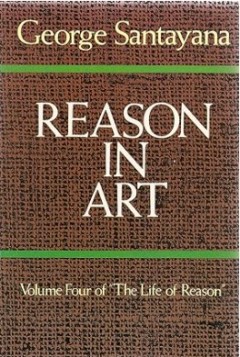
Reason in Art : Volume Four of "The Life of Reason"
- Edisi
- First Published
- ISBN/ISSN
- 0-486-24358-3
- Deskripsi Fisik
- ix + 230 pgs.; 20 cm.
- Judul Seri
- -
- No. Panggil
- 700.1 SAN r
- Edisi
- First Published
- ISBN/ISSN
- 0-486-24358-3
- Deskripsi Fisik
- ix + 230 pgs.; 20 cm.
- Judul Seri
- -
- No. Panggil
- 700.1 SAN r
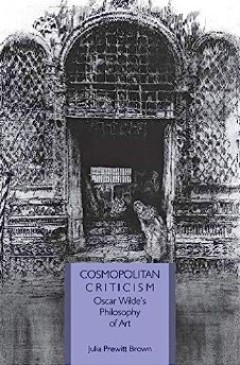
Cosmopolitan Criticism : Oscar Wilde's Philosophy of Art
CALLING OSCAR WILDE'S philosophy of art his "most elusive legacy," Brown attempts to define Wilde's conception of what art is and what it is not, of what the experience of art means in the modern world, and of the contradictory relations between the work of art and the sphere of everyday ethics. She traces the experimental character of Wilde's thought from its resonance in his own life through …
- Edisi
- First Published
- ISBN/ISSN
- 0-8139-1728-X
- Deskripsi Fisik
- xx + 137 pgs.; 22,5 cm.
- Judul Seri
- -
- No. Panggil
- 828.809 BRO c
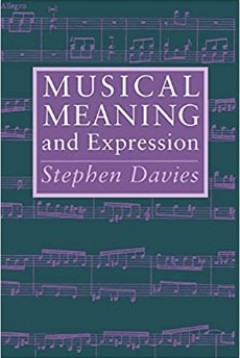
Musical Meaning and Expression
We talk not only of enjoying music, but of understanding it. Music is often taken to have expressive import―and in that sense to have meaning. But what does music mean, and how does it mean? Stephen Davies addresses these questions in this sophisticated and knowledgeable overview of current theories in the philosophy of music. Reviewing and criticizing the aesthetic positions of recent yea…
- Edisi
- First Published
- ISBN/ISSN
- 0-8014-2930-7
- Deskripsi Fisik
- xii + 417 pgs.; 23,5 cm.
- Judul Seri
- -
- No. Panggil
- 781.1 DAV m
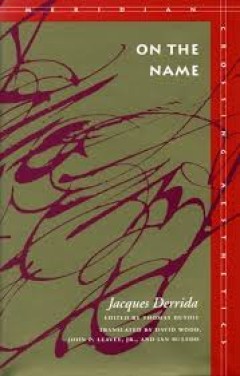
On The Name: Meridian Crossing Aesthetics
"The name: What does one call thus? What does one understand under the name of name? And what occurs when one gies a name? What does one give then? One does not offer a thing, one delivers nothing, and still something comes to be, which comes down to giving that which one does not have, as Plotinus said of the Good. What happens, above all, when it is necessary to sur-name, renaming there where…
- Edisi
- First Published
- ISBN/ISSN
- 0-8047-2555-1
- Deskripsi Fisik
- xvi + 150 pgs.; 21,5 cm.
- Judul Seri
- -
- No. Panggil
- 194 DER o
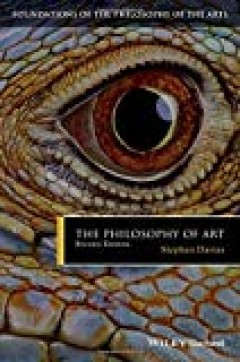
The Philosophy of Art
Written with clarity, wit, and rigor, The Philosophy of Art provides an incisive account of the core topics in the field. The first volume in the new Foundations of the Philosophy of the Arts series, designed to provide crisp introductions to the fundamental general questions about art, as well as to questions about the several arts (such as literature, music or painting). Present…
- Edisi
- Second Edition
- ISBN/ISSN
- 978-1-119-09165-3
- Deskripsi Fisik
- ix + 232 pg.; ils.; 23 cm.
- Judul Seri
- Foundation of the Philosophy of the Arts
- No. Panggil
- 701 DAV p
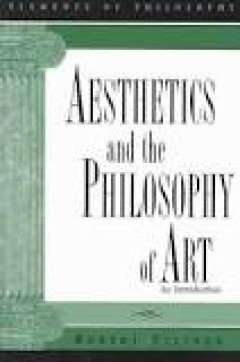
Aesthetics and the Philosophy of Art : An Introduction
Praised in its original edition for its up-to-date, rigorous presentation of current debates and for the clarity of its presentation, Robert Stecker's new edition of Aesthetics and the Philosophy of Art preserves the major themes and conclusions of the original, while expanding its content, providing new features, and enhancing accessibility. Stecker introduces students to the history and evolu…
- Edisi
- Cetakan ke-1
- ISBN/ISSN
- 0-7425-1460-9
- Deskripsi Fisik
- viii + 255 hlm.; 22 cm.
- Judul Seri
- -
- No. Panggil
- 111.85 STE a
On the Aesthetic Education of Man: In a Series of Letters English and German …
- Edisi
- -
- ISBN/ISSN
- 019815786X
- Deskripsi Fisik
- cxcvi + 376 pg.; 21,5 cm.
- Judul Seri
- -
- No. Panggil
- 700.1 SCH o
- Edisi
- -
- ISBN/ISSN
- 019815786X
- Deskripsi Fisik
- cxcvi + 376 pg.; 21,5 cm.
- Judul Seri
- -
- No. Panggil
- 700.1 SCH o
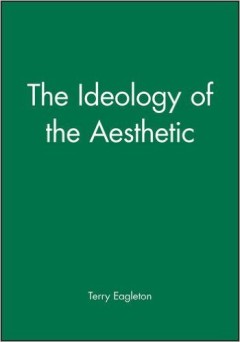
The Ideology of The Aesthetic
The Ideology of the Aesthetic presents a history and critique of the concept of the aesthetic throughout modern Western thought. As such, this is a critical survey of modern Western philosophy, focusing in particular on the complex relations between aesthetics, ethics and politics. Eagleton provides a brilliant and challenging introduction to these concerns, as characterized in the work of Kant…
- Edisi
- -
- ISBN/ISSN
- 0631163018
- Deskripsi Fisik
- 426 pg.; 23 cm.
- Judul Seri
- -
- No. Panggil
- 111.850903 EAG i
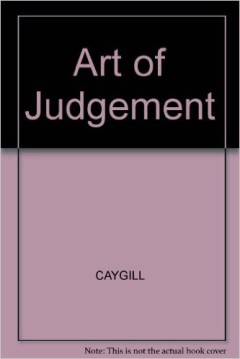
Art Of Judgement
This original reading of Kant's third critique, "The Critique of Judgement-Power", provides an innovative view of the role of judgement in current theoretical debates, in both the humanities and social sciences. Judgement serves as a focus for interdisciplinary aspirations - spanning theoretical, practical and aesthetic as a site for the exploration of questions of rationality and difference wh…
- Edisi
- -
- ISBN/ISSN
- 0631165967
- Deskripsi Fisik
- vii + 428 pg.; 23,5 cm.
- Judul Seri
- -
- No. Panggil
- 111.85 CAY a
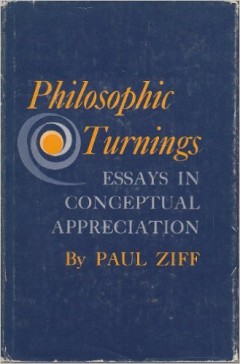
Philosophical Turnings: Essays in Conceptual Appreciation
- Edisi
- -
- ISBN/ISSN
- -
- Deskripsi Fisik
- ix + 186 pg.; 22 cm.
- Judul Seri
- -
- No. Panggil
- 111.85 ZIF p
- Edisi
- -
- ISBN/ISSN
- -
- Deskripsi Fisik
- ix + 186 pg.; 22 cm.
- Judul Seri
- -
- No. Panggil
- 111.85 ZIF p
 Karya Umum
Karya Umum  Filsafat
Filsafat  Agama
Agama  Ilmu-ilmu Sosial
Ilmu-ilmu Sosial  Bahasa
Bahasa  Ilmu-ilmu Murni
Ilmu-ilmu Murni  Ilmu-ilmu Terapan
Ilmu-ilmu Terapan  Kesenian, Hiburan, dan Olahraga
Kesenian, Hiburan, dan Olahraga  Kesusastraan
Kesusastraan  Geografi dan Sejarah
Geografi dan Sejarah